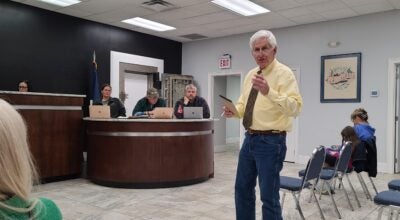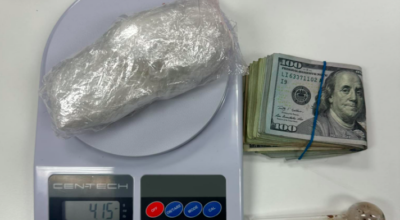Danville distillery asks P&Z to allow rickhouses on agricultural land
Published 5:48 pm Wednesday, December 18, 2019
Trail Distillery wants local zoning regulations modified to allow for some distillery operations on agricultural land in Boyle County, according to Jody Lassiter, president of the Danville-Boyle County Economic Development Partnership.
Lassiter said Wednesday that Wilderness Trail would like to see the local zoning regulations in Boyle modeled after those in Nelson County, which is home to numerous distilleries, including Jim Beam, Maker’s Mark and Four Roses.
The proposal is to allow more industrial facilities, such as rickhouses that store bourbon barrels while they age, on agricultural tracts of 100 or more acres, Lassiter said.
Currently, all distillery operations and facilities in Boyle County must be on land zoned for industrial use, which gives Boyle a competitive disadvantage over nearby and neighboring counties, Lassiter said.
Shane Baker, co-owner of Wilderness Trail, confirmed Wednesday that his distillery has asked for P&Z to change the zoning laws.
Baker said current laws also limit the building of rickhouses to property within the city limits, where alcohol sales are legal.
“There is only so much land within city limits,” he said.
Baker said Danville’s personal property taxes on the distillery’s stored barrels of bourbon also “creates a non-competitive environment compared to other distilleries who are allowed to use agriculture land.”
“The state of Kentucky recognized years ago that an ad valorem tax on barrels in Kentucky was a bad thing for business and they have been phasing out that additional tax burden,” Baker said. “But the city not only has kept it but the rates are nearly double and it just will not work for us long term.
“There are no city utilities required for the rickhouses, they do not require sewer, water … and there is no advantage of being in the city limits.”
Baker said most distilleries in Kentucky use rickhouses built on agricultural land, which is “the preferred location.”
“We are looking to build two to three rickhouses per year for an extended future and we now have 163 acres for that plan if it works out here in Boyle County,” he said.
The zoning-change request is being made after Wilderness Trail bought more than 100 acres of farm land at auction; the land sits immediately south of the distillery’s location on Lebanon Road, Lassiter said.
Such a change could have benefits for “smart growth” in Boyle County, because it could allow farmers to lease land that can’t be farmed, perhaps in the knobs area in the southern portion of Boyle, to distilleries for rickhouse development, he said. It could also be “a retention opportunity” because Wilderness Trail is regularly approached by other communities about building in places other than Danville and Boyle County, Lassiter added.
Lassiter said the request is expected to be handled by the Danville-Boyle County Planning and Zoning Commission’s Advisory Committee. It amounts to a “slight change that does not impact the quality and character of our countryside” and makes development easier for distilleries, he said.
Lassiter noted the Luca Mariano distillery project on the east side of Danville would still need the industrial zoning it is currently pursuing for the production facilities it’s planning to build.
EDP board member David Williams, founder of the Danville-based feed company Burkmann Nutrition, said of the proposed change, “I think it’s very logical.”
“This is value-added agri-business,” Lassiter said.
P&Z could begin considering the request no earlier than January, Lassiter said.






